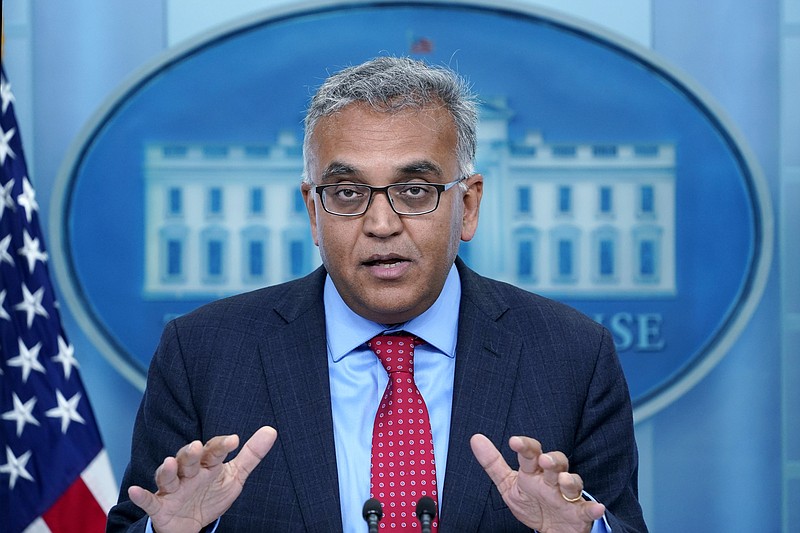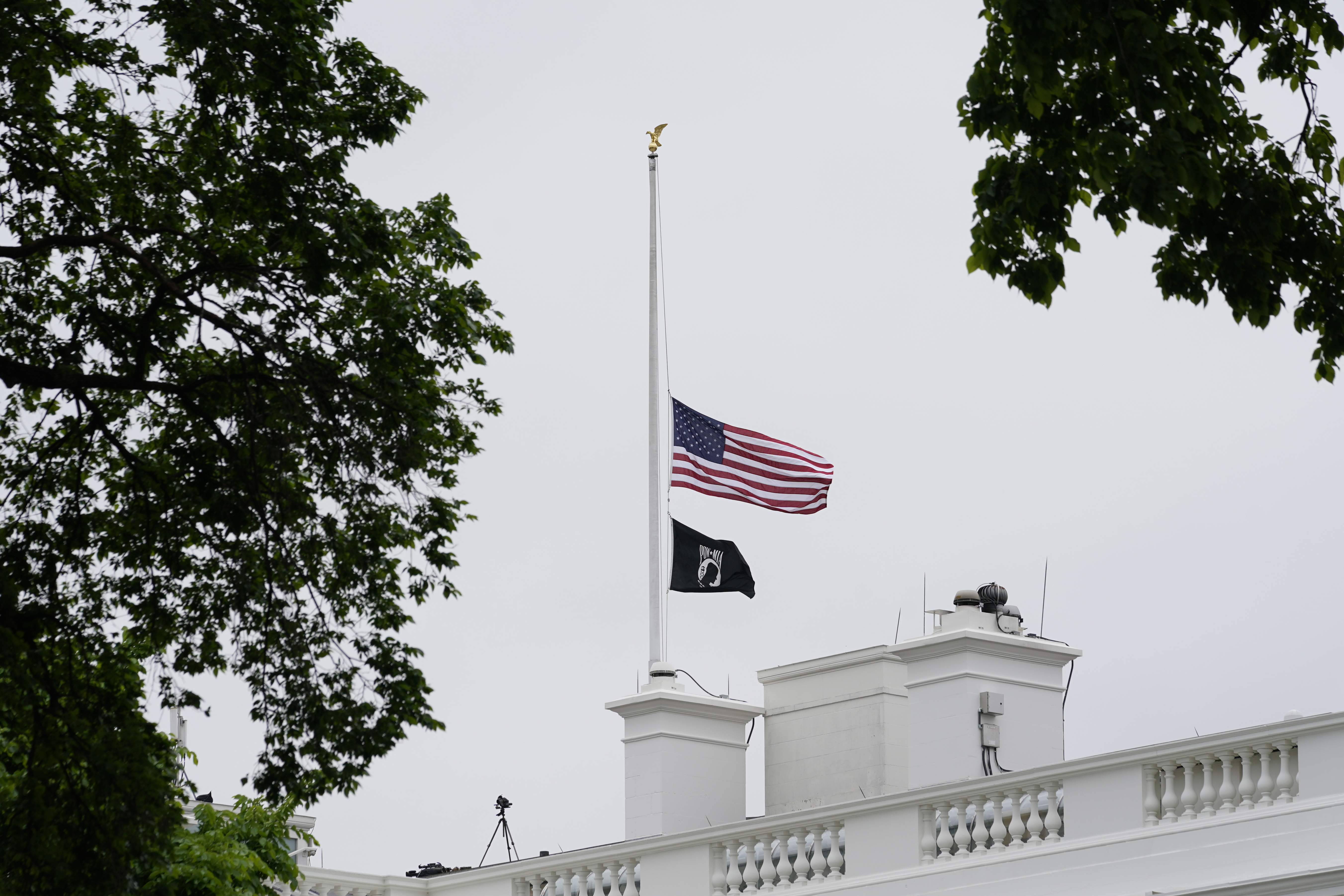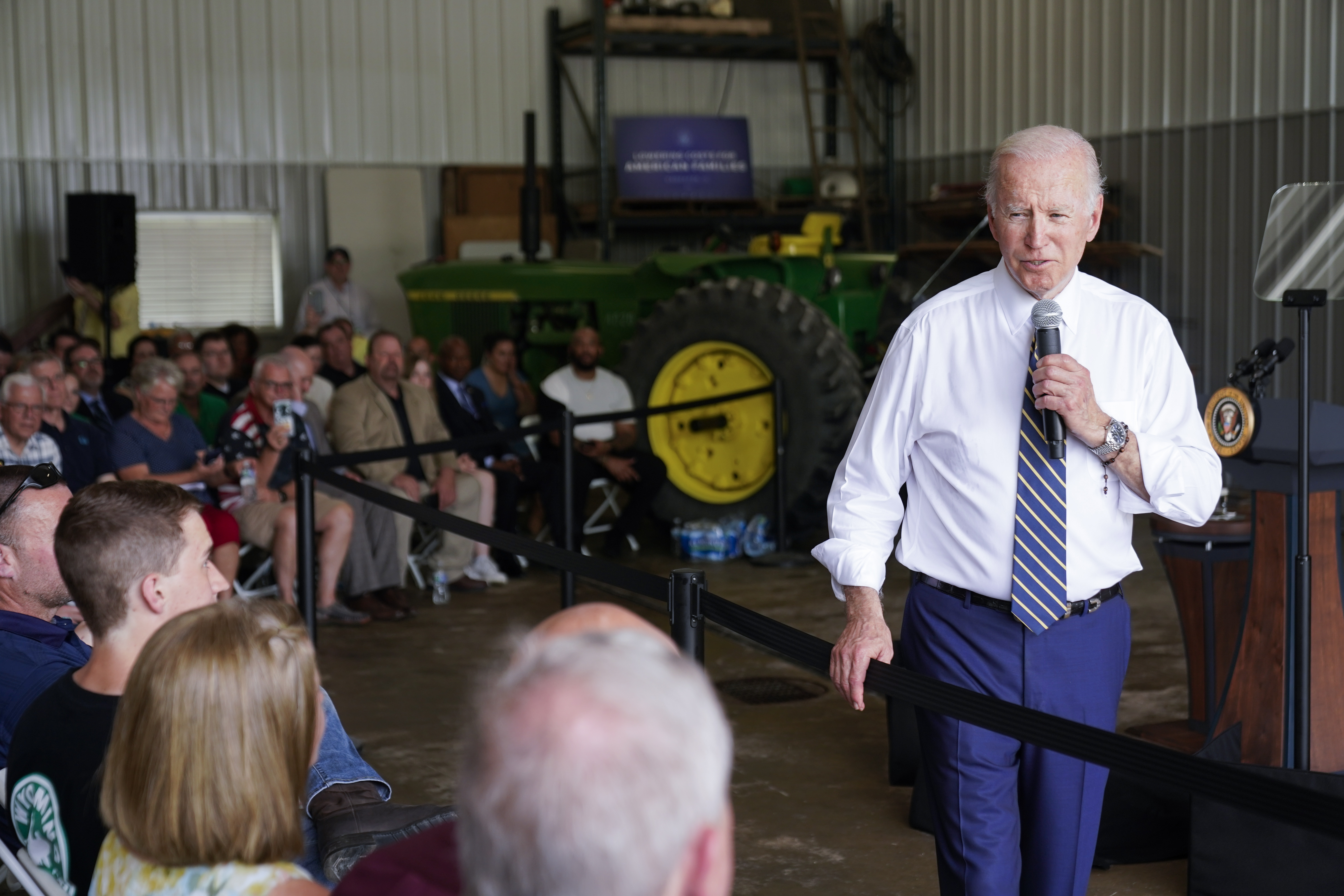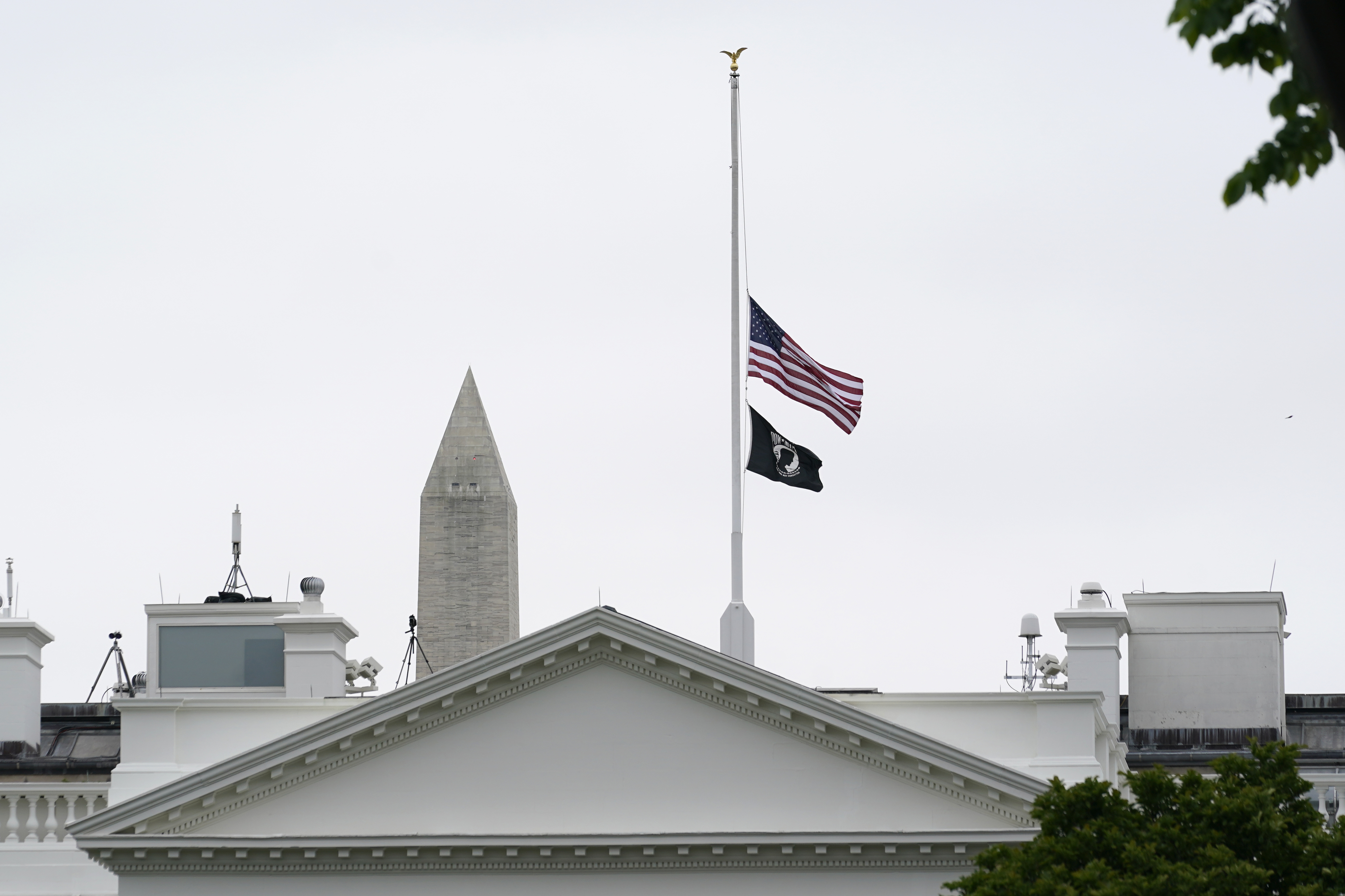WASHINGTON (AP) -- President Joe Biden appealed to world leaders at a COVID-19 summit Thursday to reenergize a lagging international commitment to attacking the virus as he led the U.S. in marking the "tragic milestone" of 1 million deaths in America. He ordered flags lowered to half-staff and warned against complacency around the globe.
"This pandemic isn't over," Biden declared at the second global pandemic summit. He spoke solemnly of the once-unthinkable U.S. toll: "1 million empty chairs around the family dinner table."
The coronavirus has killed more than 999,000 people in the U.S. and at least 6.2 million people globally since it emerged in late 2019, according to figures compiled by Johns Hopkins University. Other counts, including by the American Hospital Association, American Medical Association and American Nurses Association, have the toll at 1 million.
"Today, we mark a tragic milestone here in the United States, 1 million COVID deaths," he said.
The president called on Congress to urgently provide billions of dollars more for testing, vaccines and treatments, something lawmakers have been unwilling to deliver so far.
That lack of funding -- Biden has requested an additional $22.5 billion in what he calls critically needed money -- is a U.S. reflection of faltering resolve that jeopardizes the global response to the pandemic, he said.
Eight months after he used the first COVID-19 summit to announce an ambitious pledge to donate 1.2 billion vaccine doses to the world, the urgency of the U.S. and other nations to respond has waned.
Momentum on vaccinations and treatments has faded even as more infectious variants rise and billions of people across the globe remain unprotected.
Biden addressed the opening of the virtual summit Thursday morning with recorded remarks and made the case that tackling COVID-19 "must remain an international priority." The U.S. is co-hosting the summit along with Germany, Indonesia, Senegal and Belize.
"This summit is an opportunity to renew our efforts to keep our foot on the gas when it comes to getting this pandemic under control and preventing future health crises," Biden said.
The U.S. has shipped nearly 540 million vaccine doses to more than 110 countries and territories, according to the State Department -- far more than any other donor nation.
The leaders announced about $3 billion in new commitments to fight the virus, along with a host of new programs meant to boost access to vaccines and treatments around the world. However, that was a far more modest outcome than at last year's meeting.
"At the global level, all countries, big or small, rich or poor, must have equal access to health solutions," Indonesian President Joko Widodo said in his remarks.
After the delivery of more than 1 billion vaccines to the developing world, the problem is no longer a lack of shots but of logistical support to get doses into arms. According to government data, more than 680 million donated vaccine doses have been left unused in developing countries because they were expiring and couldn't be administered quickly enough. As of March, 32 poorer countries had used less than half of the COVID-19 vaccines they were sent.
U.S. assistance to promote and facilitate vaccinations overseas dried up earlier this year, and Biden has requested about $5 billion for the effort through the rest of the year.
"We have tens of millions of unclaimed doses because countries lack the resources to build out their cold chains, which basically is the refrigeration systems, to fight disinformation and to hire vaccinators," White House press secretary Jen Psaki said this week.
"We're going to continue to fight for more funding here," Psaki said. "But we will continue to press other countries to do more to help the world make progress as well."
Congress has balked at the price tag for COVID-19 relief and has thus far refused to take up the package because of political opposition to the impending end of pandemic-era migration restrictions at the U.S.-Mexico border. Even after a consensus for virus funding briefly emerged in March, lawmakers decided to strip out the global aid funding and solely focus the assistance on shoring up U.S. supplies of vaccine booster shots and therapeutics.
Biden has warned that without Congress acting, the U.S. could lose out on access to the next generation of vaccines and treatments, and that the nation won't have enough supply of booster doses or the antiviral drug Paxlovid for later this year. He's also sounding the alarm that more variants will spring up if the U.S. and the world don't do more to contain the virus globally.
In an interview Thursday with the Associated Press, White House COVID-19 coordinator Dr. Ashish Jha pressed the need for the U.S. to fund global vaccination efforts as a way to protect Americans at home, warning that strains like delta and omicron first sprang up overseas.
"All of these variants were first identified outside of the United States," he said. "If the goal is to protect the American people, we have got to make sure the world is vaccinated. There's just no domestic-only approach here."
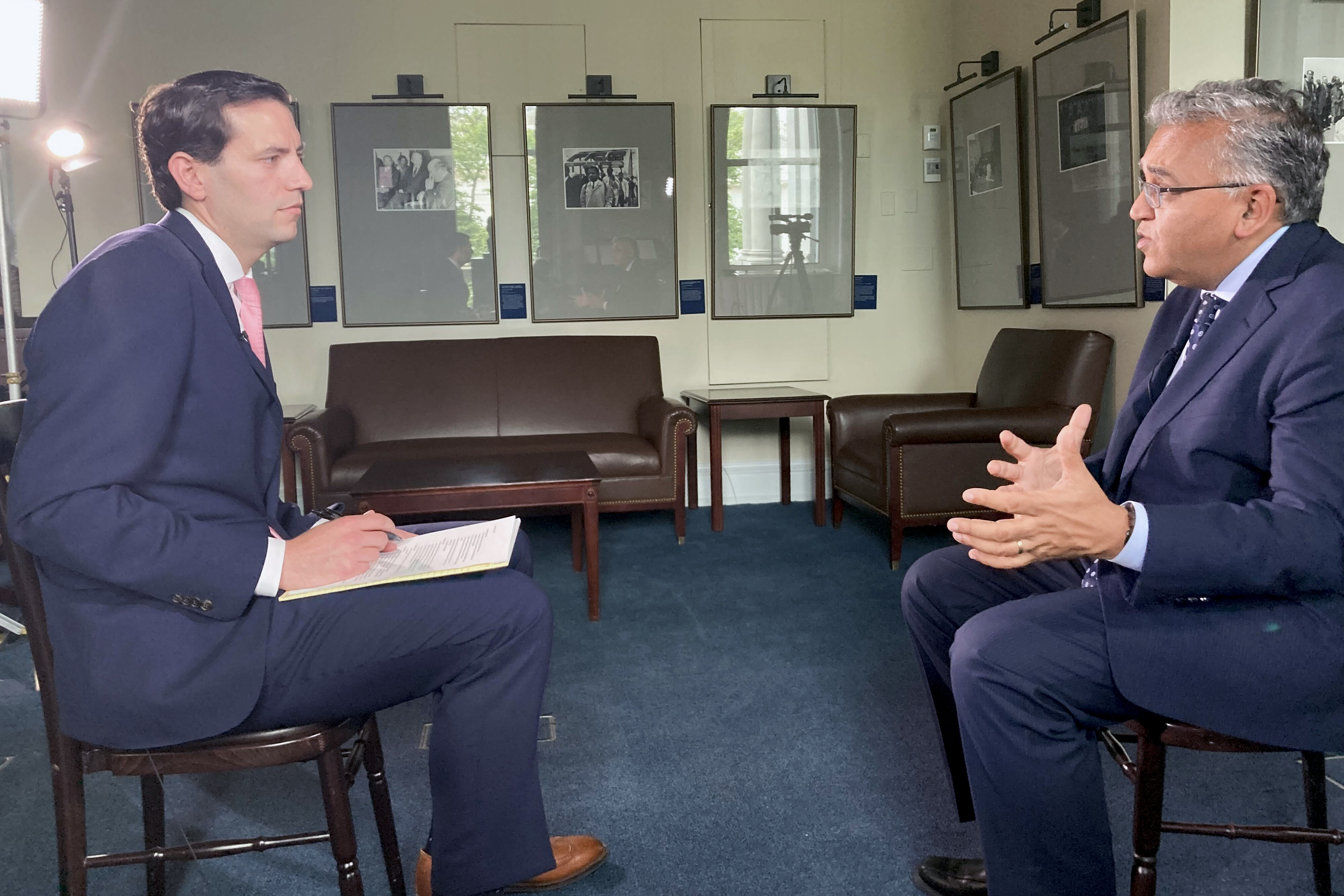 AP's Zeke Miller interviews White House COVID-19 Response Coordinator Dr. Ashish Jha, Thursday, May 12, 2022 on the White House complex in Washington. Speaking to the Associated Press, Jha said Americans' immune protection from the virus is waning and the virus is adapting to be more contagious, and that booster doses for most people will be necessary — with the potential for enhanced protection from a new generation of shots. (AP Photo/Nathan Elgren)
AP's Zeke Miller interviews White House COVID-19 Response Coordinator Dr. Ashish Jha, Thursday, May 12, 2022 on the White House complex in Washington. Speaking to the Associated Press, Jha said Americans' immune protection from the virus is waning and the virus is adapting to be more contagious, and that booster doses for most people will be necessary — with the potential for enhanced protection from a new generation of shots. (AP Photo/Nathan Elgren)
